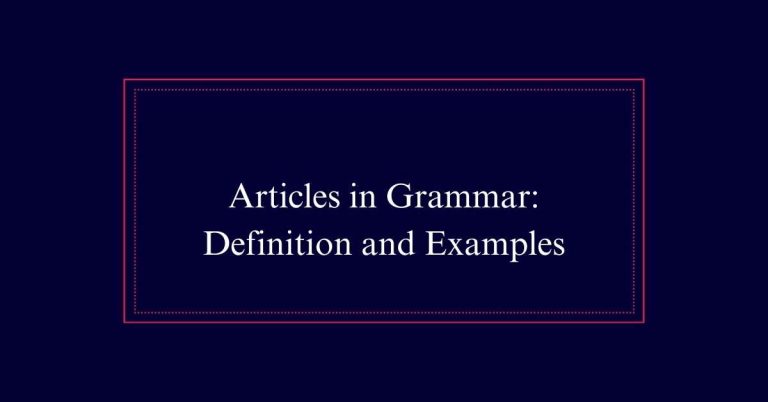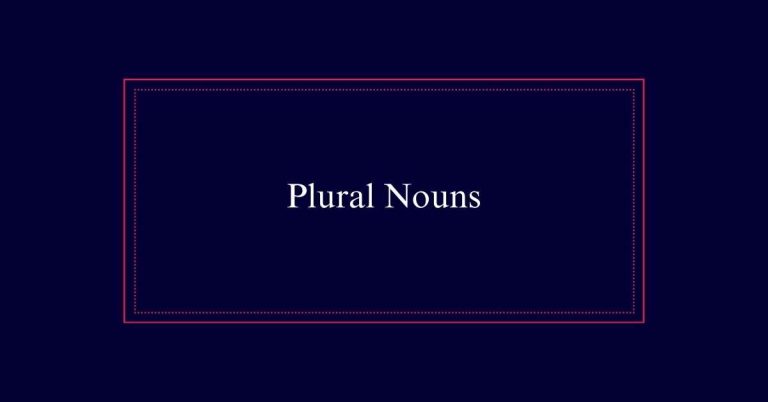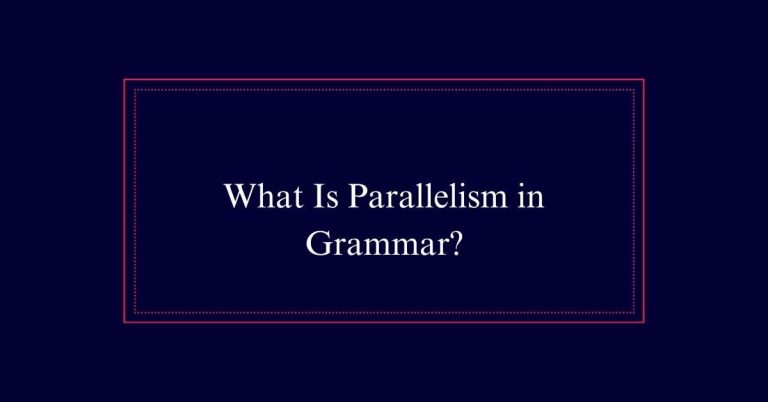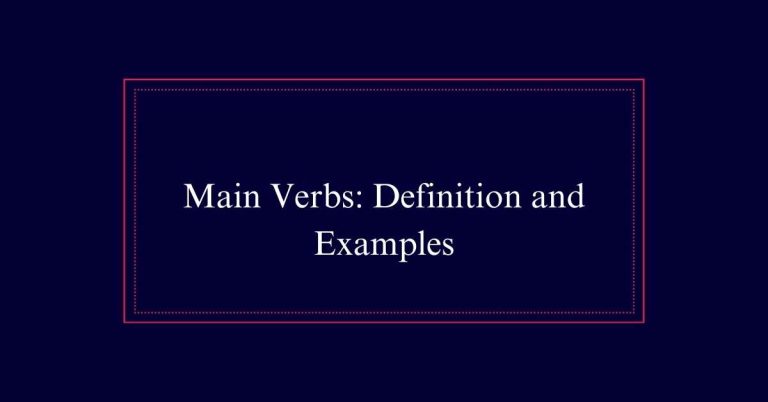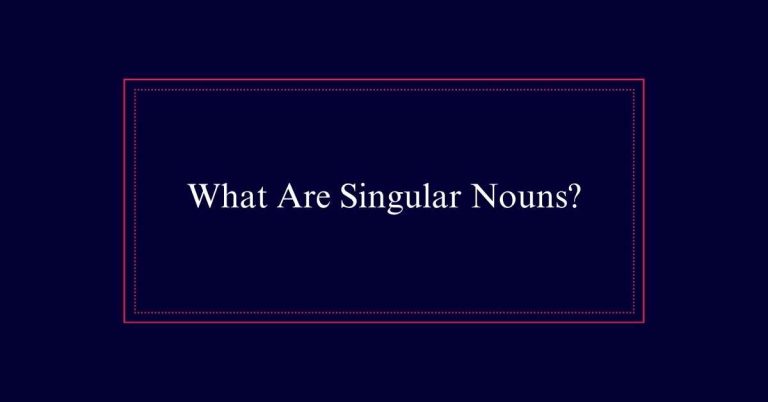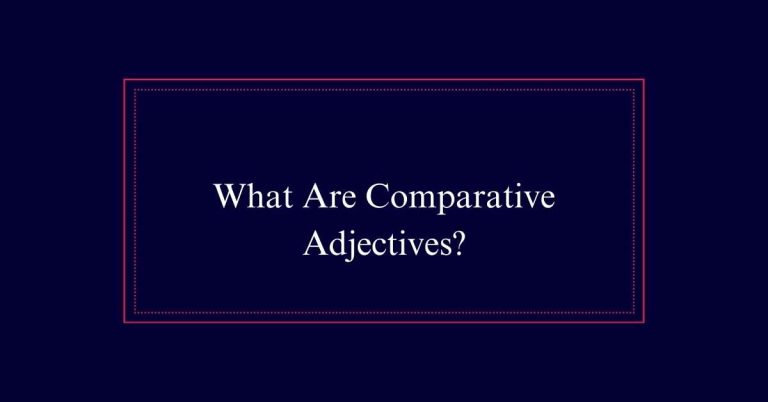Synonym: Definition and Examples
Synonyms are words that have significant meanings. They play a vital role in making language varied and expressive. Using synonyms helps avoid repetition and keeps communication interesting. For example, happy can be replaced with joyful, big with large, and smart with intelligent.
What Are Synonyms?
Synonyms are words that have the same or similar meanings, allowing for varied and precise expression in language. These words can be found among all parts of speech, including nouns, verbs, adjectives, and adverbs.
Synonyms enable writers and speakers to choose the most fitting word for a particular context, enhancing clarity and precision. For instance, words like ‘happy’ and ‘joyful’ convey similar emotions but may suit different contexts.
There are different types of synonyms: absolute, partial, and near synonyms, each varying in the degree of similarity.
Importance of Synonyms
In writing, the use of synonyms is vital for avoiding repetition and maintaining reader interest. Synonyms enhance the richness of language, allowing writers to convey ideas more precisely.
By using different words with similar meanings, writers can keep their content dynamic and engaging. This variety prevents monotonous phrasing and helps emphasize different shades of meaning.
Additionally, synonyms allow for clearer expression, making communication more effective. They provide writers with the flexibility to match the tone and style of their writing to the context.
Types of Synonyms
To fully grasp the concept of synonyms, it is essential to understand the various types, including absolute, partial, and near synonyms.
Absolute synonyms are words that share the same meaning in all contexts.
Partial synonyms, on the other hand, have similar but not identical meanings and may be used interchangeably in some contexts but not others.
Near synonyms are words that are close in meaning but have distinct nuances or connotations. These distinctions are vital for precise communication.
Understanding these types helps in selecting the most appropriate word for a given context, enhancing clarity and effectiveness in writing.
Absolute Synonyms
Absolute synonyms are words that have identical meanings in every context. They can be used interchangeably without altering the meaning of a sentence.
However, absolute synonyms are rare in the English language. This rarity is because most words carry subtle differences in connotation, usage, or formality.
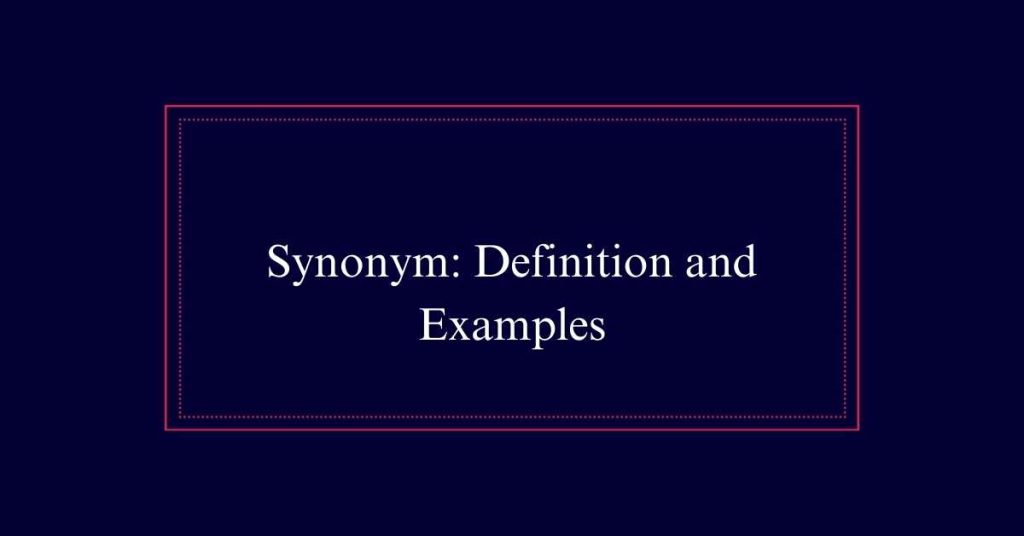
For instance, ‘big’ and ‘large’ are often used as synonyms, but they are not absolute synonyms. ‘Big’ might be more informal, while ‘large’ can be more formal.
True absolute synonyms are difficult to find, as language evolves and words acquire unique shades of meaning. Understanding this helps in selecting the most precise words for effective communication.
Partial Synonyms
Partial synonyms are words that share similar meanings but differ slightly in connotation or usage. These differences can be subtle but significant.
For example, ‘slim’ and ‘skinny’ both refer to a slender body, yet ‘slim’ often has a positive connotation, while ‘skinny’ can sound negative.
Another example is ‘job’ versus ‘career.’ Both refer to work, but ‘career’ implies long-term professional growth.
Near Synonyms
Near synonyms are words with meanings that are similar but not identical. They often convey slight differences in tone, context, or importance. Understanding these nuances is essential for precise communication. For instance, ‘happy’ and ‘content’ both indicate positive emotions but vary in intensity and context. Using near synonyms effectively can enhance expression and add depth to writing. Below is a table illustrating examples of near synonyms:
| Word | Near Synonym |
|---|---|
| Happy | Content |
| Big | Large |
| Quick | Fast |
| Smart | Intelligent |
| Angry | Upset |
Synonymy and Polysemy
Having explored near synonyms, it is important to understand the concepts of synonymy and polysemy.
Synonymy refers to the relationship between words that have similar meanings, such as ‘happy’ and ‘joyful’. These words can often be used interchangeably without altering the sentence’s meaning.
Polysemy, however, occurs when a single word has multiple related meanings. For example, the word ‘bank’ can mean the side of a river or a financial institution. Understanding polysemy is essential for context-specific word choice.
Homonymy and Contronymy
Homonymy and contronymy are intriguing aspects of the English language that highlight the complexity and versatility of words. Homonyms are words that sound alike or are spelled the same but have different meanings. Contronyms, also known as auto-antonyms, are words with meanings that contradict each other depending on the context.
| Type | Definition |
|---|---|
| Homonym | Same spelling or sound, different meanings |
| Contronym | Same word, opposite meanings depending on use |
| Homograph | Same spelling, different pronunciation/meaning |
| Homophone | Same sound, different meaning/spelling |
| Example | ‘Lead’ (to guide) vs. ‘Lead’ (metal) |
Examples of Synonyms
Many words in English have synonyms that can be used interchangeably to enhance clarity and expression.
For example, the word ‘happy’ can be substituted with ‘joyful,’ ‘content,’ or ‘pleased.’ Each synonym conveys a similar sense of positivity and satisfaction.
Similarly, ‘big’ can be replaced with ‘large,’ ‘huge,’ or ‘enormous,’ depending on the context and intensity desired.
Another example is ‘fast,’ which has synonyms like ‘quick,’ ‘speedy,’ and ‘rapid.’ These alternatives allow writers to choose the most fitting word for their specific context.
Synonym Usage Tips
To effectively use synonyms, consider the context and intended meaning of your sentence. Choose synonyms that fit the tone and style of your writing. Avoid using obscure or overly complex alternatives that might confuse readers.
Confirm that the synonym maintains the original sentence’s meaning. Use a thesaurus to find suitable alternatives but verify their appropriateness through dictionaries. Be mindful of subtle differences in connotation and usage.
For example, ‘happy’ and ‘content’ are similar but not identical. Varying word choice can prevent monotony and keep readers engaged. Avoid overuse of synonyms; sometimes, repetition for emphasis is more effective.

